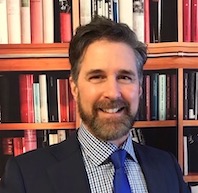TRN160Y1: Public Policy and Public Good
COURSE DESCRIPTION
This course highlights the broad theoretical, philosophical, and historical basis upon which public policy in the West — and more specifically public policy in Canada — is conceived, enacted, and implemented. We examine the meaning and the shifting boundary between the public and the private and explore the philosophical and political relationship between the community and the individual. We consider classical and contemporary views on the public good, and analyze political, democratic, and technocratic views of policy formation and implementation. We also evaluate some of the institutional constraints on public policy formation and implementation in terms of constitutions, international treaties and agreements, as well as in terms of bureaucratic inertia, complexity, and the problem of unintended consequences. Important topics include power, interests, ideologies, democracy, and public reason.
Breadth Requirements: 0.5 FCE 2) Thought, Belief and Behaviour + 0.5 FCE 3) Society and Its Institutions
HOW WILL I BE EVALUATED IN THIS COURSE?
All assignments in TRN160Y1 will require critical thinking and engaging with the views of others. These assignments include:
- Short papers
- Seminar participation
- Presentations
- Final research paper
Note: Assignments can vary year to year.
WHAT WILL I GAIN FROM THIS COURSE?
Drawing on readings in philosophy and political theory, the course considers a variety of approaches to interpreting the nature of the public good and asks how policy makers should respond when competing goods (e.g., freedom and security) clash with each other.
FREQUENTLY ASKED QUESTIONS
2023-2024 COURSE INSTRUCTOR
|
Email: david.carvounas@utoronto.ca Dr. David Carvounas is a lecturer on the history of political thought at the University of Toronto and Glendon College. His interests include the history of political thought, theories of democracy, political ethics, modernity and temporality, globalism and the rise of post-globalist politics. |


